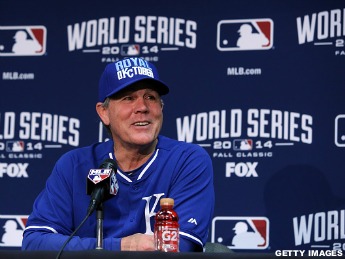San Francisco and Kansas City's managers were significant characters in this year's World Series, with the aggressive decision-making on both sides often contributing to the narrative of each game.
That's fun and all, but how much are those managers really influencing games -- or, for that matter, their respective team's seasons?
According to the Minneapolis Star Tribune, managers have an influence -- but not in the way you might think.
While the statistical evidence can be hard to scrape together, the best evidence of managerial influence appears to be in regards to a team's overall chemistry. Most front offices believe that managers play a significant role in handling egos and making sure the team culture is strong and focused.
It's a lot of relationship management, in other terms.
Meanwhile, some of the more visible actions of managers may be exaggerated. According to many sabermetricians, for example, the in-game calls managers make to create small advantages don't wind up producing any results in the long run.
Whether it's calling for a steal or ordering up a bunt, statistical analysis shows that those actions don't make much -- if any -- difference.
But managers can influence the style of play a team pursues, whether that means batting more aggressively, playing a defense-minded game or attacking opponents in different ways.
Those differences play out over the course of a season. But none of those managing tools are used in-game -- instead, they're implementing in the pre-season and during practices.
The one aspect of baseball managing that isn't disputed: When a manager loses the clubhouse, he's no longer an effective leader. Managers can't motivate their teams when the players don't want to listen.
In many cases, that's the real reason why managers get shown the door.





